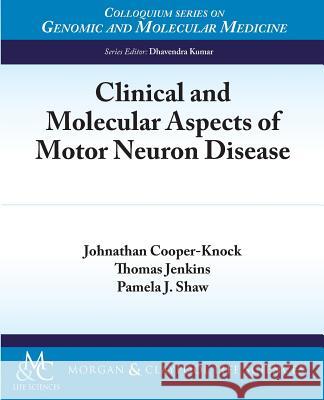Clinical and Molecular Aspects of Motor Neuron Disease » książka
Clinical and Molecular Aspects of Motor Neuron Disease
ISBN-13: 9781615044283 / Angielski / Miękka / 2013 / 60 str.
In this e-book, motor neuron disease (MND) shall refer to amyotrophic lateral sclerosis (ALS), the most common neurodegenerative disorder affecting both the upper and lower motor neurons. With the discovery of C9ORF72 expansions in approximately 10% of all MND cases, in certain populations, we stand at the brink of a new era of MND research and hopefully treatment facilitated by the ability to associate a relatively large group of patients with a similar disease mechanism. This review will summarise both current clinical management of MND and our present understanding of the molecular pathogenesis of MND. Study of C9ORF72-MND has the potential to rapidly advance both of these aspects in the coming years. In the first section, we will discuss the clinical features of MND and describe how patients with this devastating condition present, are investigated, and managed in the 21st century. Although, currently, management is limited by an incomplete understanding of disease pathophysiology, there is much which can be done to assist and support patients with MND. In the following sections, we will discuss molecular mechanisms implicated in MND, highlighting observations which unify different theories. Particular attention will be given to placing proposed mechanisms within the clinical course of MND. Furthermore, novel therapeutic targets will be discussed. Table of Contents: Clinical Aspects of MND / Molecular Aspects of MND / References / Author Biographies / Titles of Related Interest / Series of Related Interest
In this e-book, motor neuron disease (MND) shall refer to amyotrophic lateral sclerosis (ALS), the most common neurodegenerative disorder affecting both the upper and lower motor neurons. With the discovery of C9ORF72 expansions in approximately 10% of all MND cases, in certain populations, we stand at the brink of a new era of MND research and hopefully treatment facilitated by the ability to associate a relatively large group of patients with a similar disease mechanism. This review will summarise both current clinical management of MND and our present understanding of the molecular pathogenesis of MND. Study of C9ORF72-MND has the potential to rapidly advance both of these aspects in the coming years.In the first section, we will discuss the clinical features of MND and describe how patients with this devastating condition present, are investigated, and managed in the 21st century. Although, currently, management is limited by an incomplete understanding of disease pathophysiology, there is much which can be done to assist and support patients with MND. In the following sections, we will discuss molecular mechanisms implicated in MND, highlighting observations which unify different theories. Particular attention will be given to placing proposed mechanisms within the clinical course of MND. Furthermore, novel therapeutic targets will be discussed.Table of Contents: Clinical Aspects of MND / Molecular Aspects of MND / References / Author Biographies / Titles of Related Interest / Series of Related Interest











